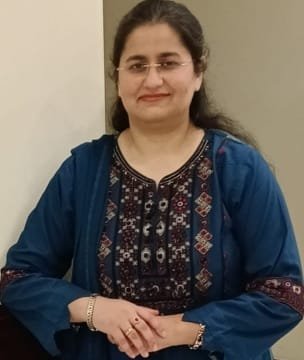Pakistan, a nation with a rich cultural heritage, faces significant challenges in its quest for women’s empowerment, particularly within the context of an illiterate society. Illiteracy rates in Pakistan, especially among women, remain alarmingly high, impeding progress toward gender equality and hindering the nation’s overall development. In this article, we delve into the complex interplay between an illiterate society and the pursuit of women’s empowerment in Pakistan, shedding light on the barriers, potential solutions, and the transformative impact education can have on women’s lives.
The Burden of Illiteracy: Illiteracy rates in Pakistan disproportionately affect women, primarily due to cultural and social barriers. Deep-rooted gender norms, early marriages, financial constraints, and cultural biases often restrict girls’ access to education. The lack of educational opportunities perpetuates a cycle of illiteracy, leaving women without the skills and knowledge needed to navigate modern society, hindering their personal growth, economic independence, and overall empowerment.
Illiteracy reinforces economic and social disadvantages for women in Pakistan. Limited literacy skills severely restrict employment options, leading to women’s concentration in low-paying and informal sectors. The resulting economic dependence perpetuates gender inequality, leaving women vulnerable to exploitation and reinforcing traditional gender roles. Illiterate women face challenges in accessing healthcare, making informed decisions, and participating in public life, further exacerbating their marginalization.
The Battle for Empowerment: In the battle for empowerment, a heart-wrenching incident took place on 17th June; “a murder case of Female Sub-Divisional Education Officer (SDEO) in district Khyber, Landi Kotal” has sent shockwaves throughout the country, leaving behind a void that can never be filled. The loss of this passionate advocate for education not only leaves her family and friends devastated but also poses a profound setback to the progress and empowerment of women in the field. The murderer-“her husband”, who accepted the responsibility of murder-cause of which remain under investigation, but it is evident that this heinous act of violence has robbed the community of a compassionate and dedicated leader. As the details slowly emerge, the shock and disbelief within the community only intensify, and the loss of such an exceptional individual becomes even more painful to comprehend. Her murder sends a terrifying message that the path to progress is not without obstacles, and that women who dare to challenge the status quo can become targets of violence. It highlights the urgent need for stronger measures to ensure the safety and protection of women working in roles that challenge existing power dynamics.
Another incident that took place in district Torghar, a few evils attempted twice to destruct the newly built school infrastructure provided by Friends Welfare Association, Mansehra with the support of KnK Japan at Mera Mada Khail during the last week. The windows, flowerpots, switch boards were damaged by the culprits in addition to contaminating the school with litter & garbage. The culprits did so with the ultimate objective to obstruct girl’s education. The concern was raised with District Education Office & DC Torghar to take immediate action against the culprits; the matter is still under investigation. The local authorities must ensure a thorough and expeditious investigation into this heinous crime. Holding the culprits accountable will not only provide a sense of closure to the grieving but will also serve as a deterrent against such violent incidents in future, targeting individuals and organizations working tirelessly to uplift society.
The Power of Education: Education plays a vital role in challenging cultural barriers and transforming societal attitudes towards women’s empowerment. By providing girls with quality education, Pakistan can empower them to challenge traditional gender roles and stereotypes, encouraging equal participation in social, economic, and political spheres. Education equips women with critical thinking skills, fostering their ability to question norms and advocate for their rights, leading to a more inclusive society.
Education acts as a catalyst for women’s economic independence and poverty alleviation. By acquiring literacy and numeracy skills, women can access better employment opportunities, breaking free from the cycle of poverty. Educated women are more likely to make informed decisions regarding their own and their family’s finances, invest in their children’s education, and contribute to the economic growth of their communities.
Educated women in Pakistan become agents of change in improving health and well-being. Education equips women with vital health knowledge, enabling them to make informed decisions regarding healthcare, reproductive rights, and child welfare. Educated women are more likely to seek prenatal care, adopt healthier practices, and contribute to the overall well-being of their families and communities.
Educating girls is instrumental in building peaceful and resilient societies. Studies have shown that investing in girls’ education correlates with lower rates of conflict and higher levels of social cohesion. Education equips girls with problem-solving skills, resilience, and a broader understanding of the world, making them less susceptible to radicalization and violence. Educated girls grow into agents of change, promoting dialogue, tolerance, and peaceful coexistence within their communities.
Educated women in Pakistan can contribute to policy discussions, community development, and advocate for issues affecting their lives. By ensuring women’s voices are heard and their perspectives valued, Pakistan can create more inclusive policies and governance structures.
The empowerment of women in Pakistan is intricately linked to addressing the challenge of illiteracy. Breaking the cycle of illiteracy requires concerted efforts to improve access to education for girls and women, address cultural and social barriers, and invest in programs that promote literacy and lifelong learning. By empowering women through education, Pakistan can unlock their potential, promote gender equality, and propel the nation towards a more equitable and prosperous future. Recognizing the transformative power of education and taking concrete steps to bridge the literacy gap are crucial in unraveling the knot between an illiterate society and women’s empowerment in Pakistan.
About the writer: Faiza Haseeb is leading Voice Media Network and also serving Friends Welfare Association.
Can be reached at: faiza0922@gmail.com
faizahaseebfwa@gmail.com

